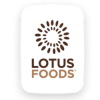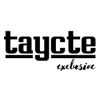From trademark disputes to class action claims of "misleading" marketing, lawsuits have become frequent in the beverage industry. More players in the market means more opportunities for disagreements, among companies or companies versus consumers or distributors. And the fast growth of the industry has paved the way for increased litigation.
The beverage market is heavily saturated, and three types of lawsuits — trademark disputes, misleading claims, and distribution rights/agreement violations — are evidence of increased competition in the industry, with companies seeking a stronghold or vying to maintain it. They're increasing as efforts to keep in line with trends and to retain and gain customers leads to battles from product labeling to distribution.
Do the big firms always win?
"No, not always," Michael Newman, partner and head of alcohol beverage team at Holland & Knight and Dan Christopherson, trademark attorney and head of the trademark group at Lehrman Beverage Law, agree, in short. But smaller companies do face certain realities when it comes to protecting brands and trademarks — litigation is expensive. Newman said that it all depends on how much disposable income a small company has and how much they’ve invested in a product.
"Usually the big companies have already invested a lot, and they're going to protect their trademark," said Newman. "… And because the big companies tend to have bigger pockets, they're more likely to defend it."
"Even if you could win, even if you're right, and even if at the end of the day, you'd be the prevailing party in the trademark lawsuit, you have to think pretty early on whether that's a good business decision for your company," said Christopherson. "… It's often a losing prospect just to be involved in one of these disputes in the first place."
The number and frequency of trademark disputes and other lawsuits in the beverage industry is increasing, and a trend that will continue this year.
Both beverage attorneys agree that trademark disputes, whether they become lawsuits or remain administrative proceedings, could be increasingly common as the market is saturated with products that all need unique names. But Newman said the class action lawsuits regarding misleading messaging may decrease if companies win a larger percentage of them, as MillerCoors did, which could discourage similar lawsuits in the future.
Trademark disputes
Trademark disputes fly from beverage maker to beverage maker, and they’ve become increasingly common as more craft and smaller manufacturers flood the market with new products — all of which are vying for what Newman and Christopherson said are a limited number of good product names or descriptions.
"It’s particularly problematic in the craft beer industry because there’s been such an explosion of craft breweries and microbreweries, and they seem to be running out of names that people can call their product," said Newman. "A lot of these names are adopted to evoke a certain type of product or taste or flavor, so it’s going to start getting more and more repetitive as products come on the market."

Consider these examples, which are just a few trademark disputes from the past year:
- January 2015 – Lagunitas Brewing filed a lawsuit against Sierra Nevada Brewing due to alleged infringement on Lagunitas’ trademarked logo designs and packaging for its Lagunitas IPA by Sierra Nevada’s Hop Hunter IPA, which features oversized letters for "IPA" similar to Lagunitas.
- May 2015 – Dr Pepper Snapple’s co-owned Big Red soda maker sued Catawissa Bottling Company over the bottler’s Big Ben’s Cream Soda allegedly infringing upon Big Red’s trademark.
- August 2015 – Sazerac sued Stout Brewing Company over Stout’s malt liquor brand, Fire Flask, which used imagery and attributes of packaging allegedly similar to Sazerac’s Fireball Cinnamon Whisky.
- August 2015 – Anheuser-Busch InBev, the "King of Beers," filed an opposition to a registration application for the trademark "The Queen of Beer" by She Beverage Co., which AB InBev said could confuse consumers to think She Beverage’s products are made by AB InBev.
"There are only so many great names out there, so that's just created an atmosphere where companies really do have to expect to be involved in this sort of dispute at some point in their existence," said Christopherson. "It's just becoming more inevitable."

What’s notable about beverage trademark lawsuits, Newman said, is that more often than not, these disputes rarely go to trial, as settlements are usually reached by both parties either during trademark negotiations or relatively soon after a lawsuit is filed.
Misleading claims
These lawsuits generally come in the form of a class action lawsuit led by a consumer or group of consumers against a company that the plaintiff alleges has misled the consumer to believe something that the plaintiff believes to be untrue, usually regarding what is printed on a product’s label or promotional materials.
MillerCoors was targeted last May over alleged "false and deceptive marketing" in regards to referring to Blue Moon as craft beer and "artfully crafted." Because Blue Moon is owned by MillerCoors, the country’s second largest brewer, Blue Moon is not considered a craft beer brand under the definition of a craft brewery proposed by the Brewers Association.
However, MillerCoors requested that the complaint be dismissed by the courts because there is no official federal or widely accepted standard definition of "craft beer." MillerCoors argued that no reasonable consumer could have been misled by the craft beer references and that its trademark for Blue Moon is sufficient in proving that MillerCoors is the actual maker of the brand.
The court dismissed the lawsuit in October. This dispute could be particularly important for major beer manufacturers as they continue to snap up craft breweries, including AB InBev’s handful of acquisitions last year, MillerCoors’ acquisition of Saint Archer Brewing, Constellation Brands’ acquisition of Ballast Point Brewing & Spirits, and Heineken’s 50% stake in Lagunitas Brewing.
In 2013, a class action lawsuit brought against Honest Tea, owned by Coca-Cola, alleged that the brand misled consumers to believe Honest Tea’s Honey Green Tea contained more antioxidants than it actually did — and that case still drags on. In January 2015, the judge in the case refused Honest Tea’s motion to dismiss the complaint, and in November 2015, the judge rejected another argument from the company that the plaintiff did not rely on nutrient content claims when she purchased the product.
In 2013, PepsiCo agreed to a $9 million settlement in regards to the "all natural" and other health claims made by its Naked Juice brand.
Distribution rights or agreement violations
Last May, AB InBev sued New Jersey wholesaler Hunterdon, which did not readily transfer distribution for products from Elysian Brewing Company (a craft brewery AB InBev had recently acquired) in the state.
AB InBev felt it offered Hunterdon fair market value, an estimated 5.5 times what Hunterdon made in gross profits on sales of Elysian products in the year ending March 31, but Hunterdon turned down the offer. AB InBev then took the matter to court, hoping that the courts could help confirm its compliance with offering to pay Hunterdon fair market value for distribution rights to Elysian brands.
Earlier this month, Splash Beverage Group filed a claim against coffeeberry beverage maker KonaRed Corporation after KonaRed announced in December that the company would be moving sales and distribution in-house. This, according to Splash Beverage, meant KonaRed would be violating a distribution agreement the two companies signed in January 2014 and an expanded partnership deal to include sales and marketing signed in April 2014.
Outliers
One noteworthy case was a lawsuit recently dropped by Sazerac against Jack Daniels’ parent company Brown-Forman. Technically, the lawsuit could be considered under the trademark banner, but this case differed from other similar disputes.
The case centered around Jack Daniels’ Tennessee Fire cinnamon whiskey brand versus Sazerac’s longstanding Fireball brand. In similar proceedings instigated by Sazerac, the word "fire" has been the focal point, but in this case, it was actually Jack Daniels’ marketing tactics that fanned the flames.
Jack Daniels used the term "Fireball" not on its packaging but in Google advertisements for Tennessee Fire, which Sazerac claimed violated its trademark. As a result, "consumers searching for Sazerac’s Fireball product would instead encounter advertisements for Tennessee Fire as the first search result," according to the lawsuit.
In the end, the lawsuit didn’t end up going anywhere, and Sazerac didn’t disclose why it was dropping the case or what any agreement between the companies might have been. Still, Brown-Forman may have dodged a bullet considering how important flavored whiskey has been for the company, especially when recent earnings were lackluster.






















